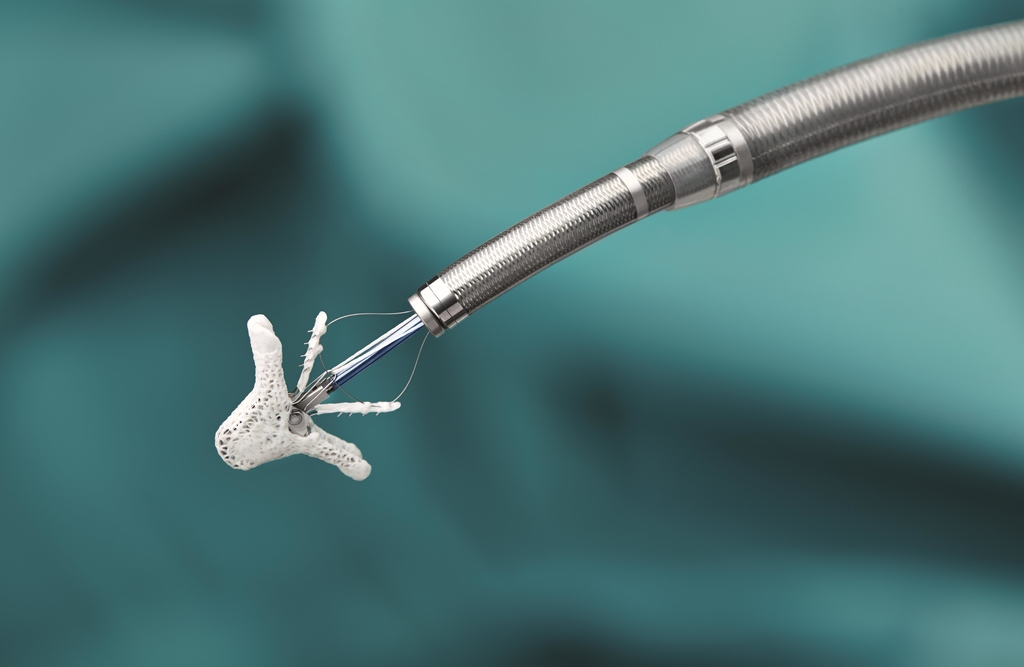The minimally invasive MitraClip procedure is an alternative to open heart surgery to repair a leaking mitral valve.
A leaking mitral valve is a common heart condition in which one of the valves directing the flow of blood through the heart fails to close correctly, resulting in a backflow of blood.
The procedure must be performed by highly qualified doctors working in top medical facilities. Heart specialists in Germany are some of the most experienced medical professionals at implementing the MitraClip system.
Mitral valve leakage: a common heart condition
The mitral valve plays a vital role in distributing oxygenated blood from the heart to the rest of the body. When the mitral valve fails to close properly, oxygenated blood may flow back into one of the heart chambers. This backflow of blood is called mitral valve leakage or mitral regurgitation.
Under these circumstances, the heart has to work much harder to supply the body’s organs with oxygenated blood. Symptoms of a leaking mitral valve can include shortness of breath, excessive tiredness and leg swelling.
Many people with a small degree of mitral valve leakage experience no symptoms and do not need treatment. However, more severe leakage causes a deficiency of oxygen in the body places strain on the heart and organs, so surgery may be required in order to correct it.
Medication such as blood thinner and blood pressure medication may provide some relief, but surgery is often necessary to treat more severe cases of mitral valve leakage. The most effective treatment option is open heart surgery in which a surgeon sews together or replaces the leaking valve. However, for patients who are not candidates for open heart surgery due to old age or comorbidities, the minimally-invasive MitraClip may be a good option.
The MitraClip procedure
In this procedure, the patient is placed under a light anesthesia. The operating surgeon uses modern imaging technology such as an ultrasound and a transesophageal echocardiogram (TEE) to view the heart. They then insert a cardiac catheter, which allows them to operate without opening the chest or stopping the heart. The MitraClip, located at the tip of the catheter, is placed between the leaflets of the mitral valve and clips them together.
As soon as the physician is sure that the clip is positioned correctly, the catheter can be withdrawn. The procedure usually lasts around two hours, and recovery time is much shorter than with traditional open surgical techniques.
Who can benefit from a MitraClip?
Because this is a minimally-invasive procedure, the MitraClip is a good option for many patients who are not candidates for traditional open heart surgery. This includes elderly people, people with co-morbidities and people who have had previous chest surgeries. A doctor will examine a patient's medical history and overall health, in addition to their specific pattern of mitral valve regurgitation, in order to determine if the MitraClip could be an effective treatment option.
Because of its effectiveness, open heart surgery is still recommended for patients who are otherwise healthy. However, the MitraClip can relieve symptoms and improve quality of life for many patients who would not otherwise be able to undergo treatment for heart conditions.
The MitraClip procedure in Germany
Because of Germany's aging population and the growing number of people living with medical conditions, the MitraClip procedure has been growing its popularity since its approval in Europe in 2008. It is now a common cardiac procedure in many top German heart centers.
Because it was approved five years earlier in Europe than in the U.S., German heart specialists are some of the most experienced at implanting MitraClip systems. Success rates of the procedure in Germany are extremely high.
At Premier Healthcare Germany, we have some of Germany’s most experienced heart and vascular surgeons in our network. We have access to high-quality interdisciplinary heart centers throughout Germany, and can put you in contact with an expert German cardiologist to determine if the MitraClip procedure is right for you. Contact us for more information on heart valve procedures in Germany.

